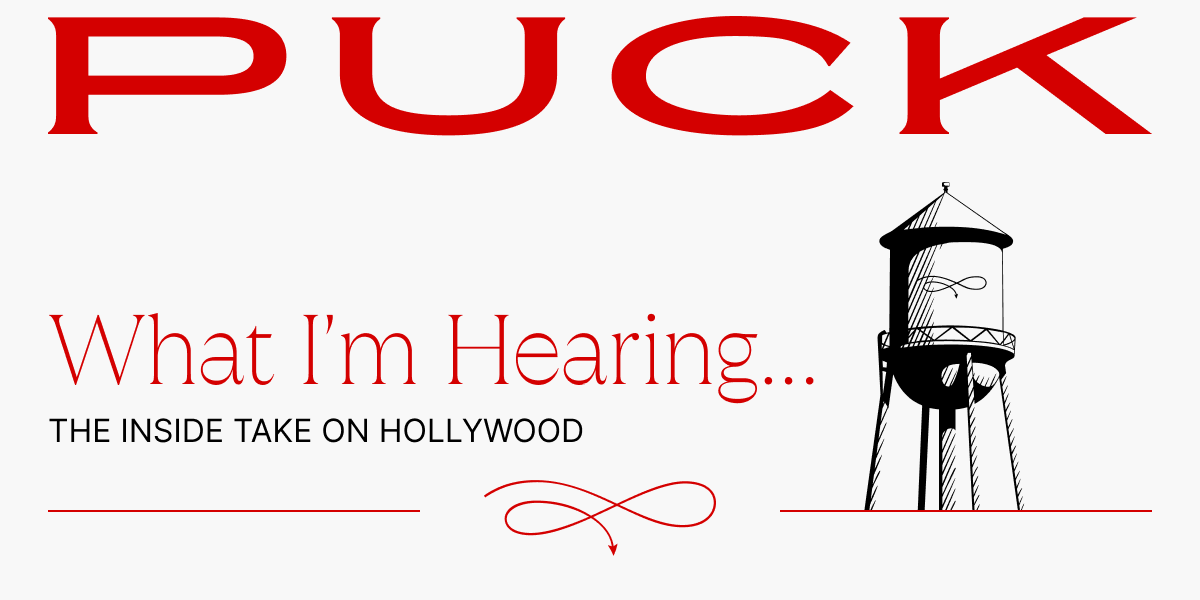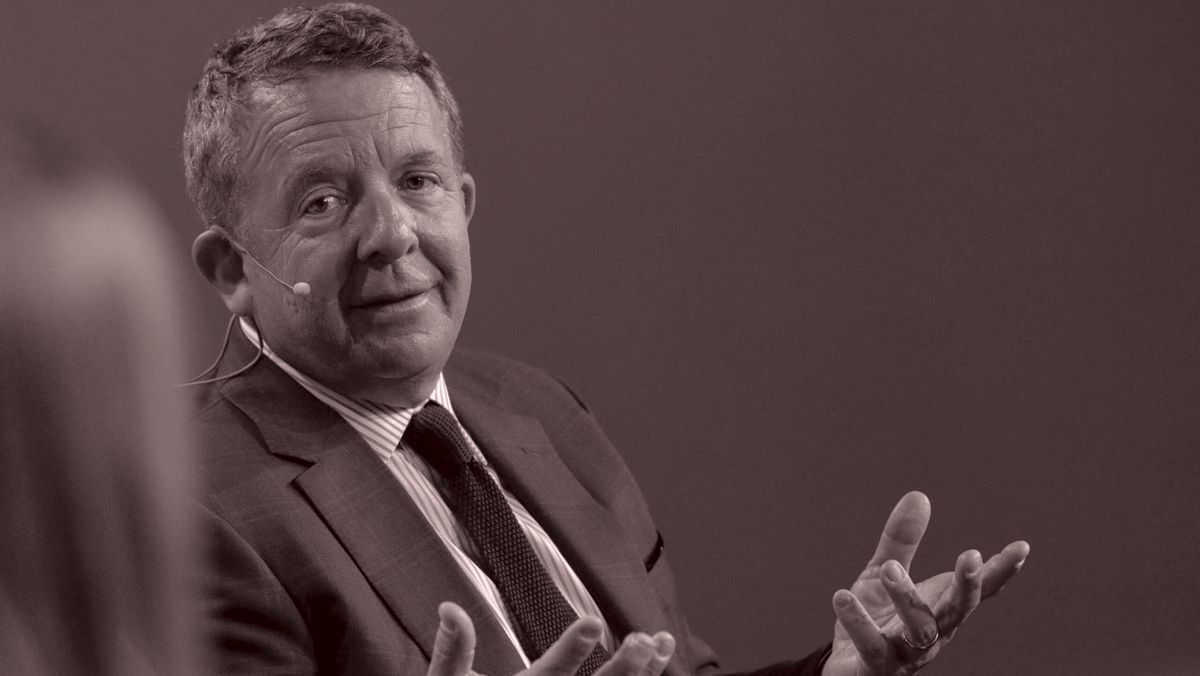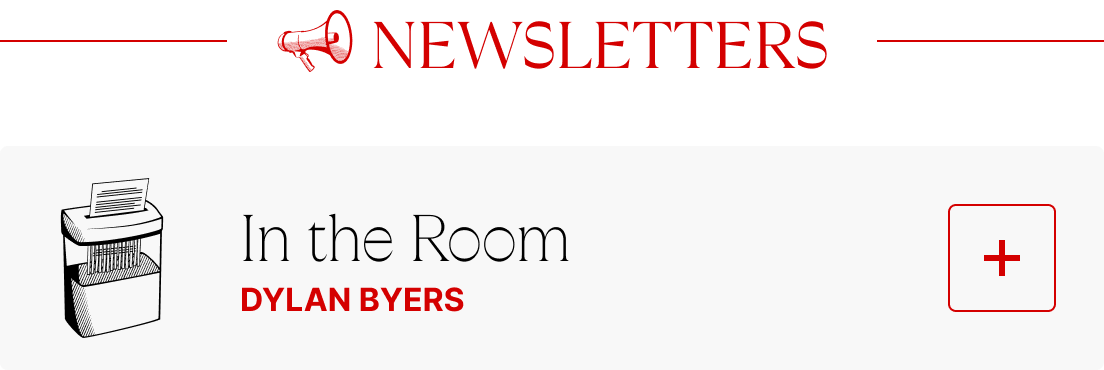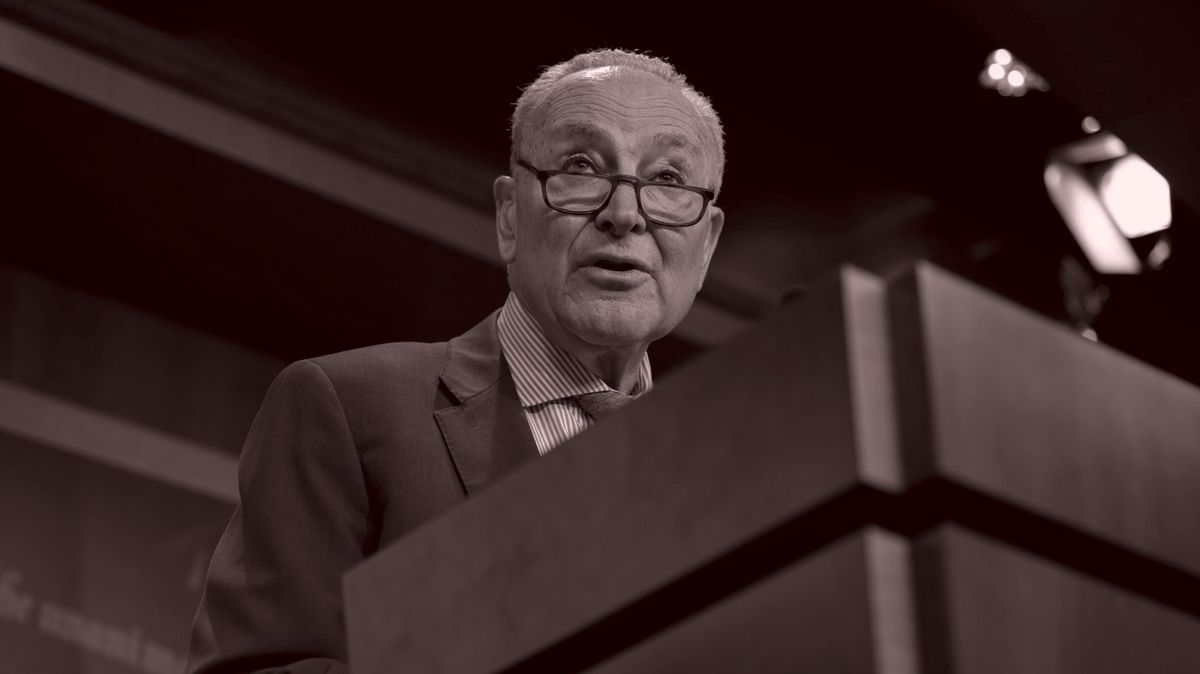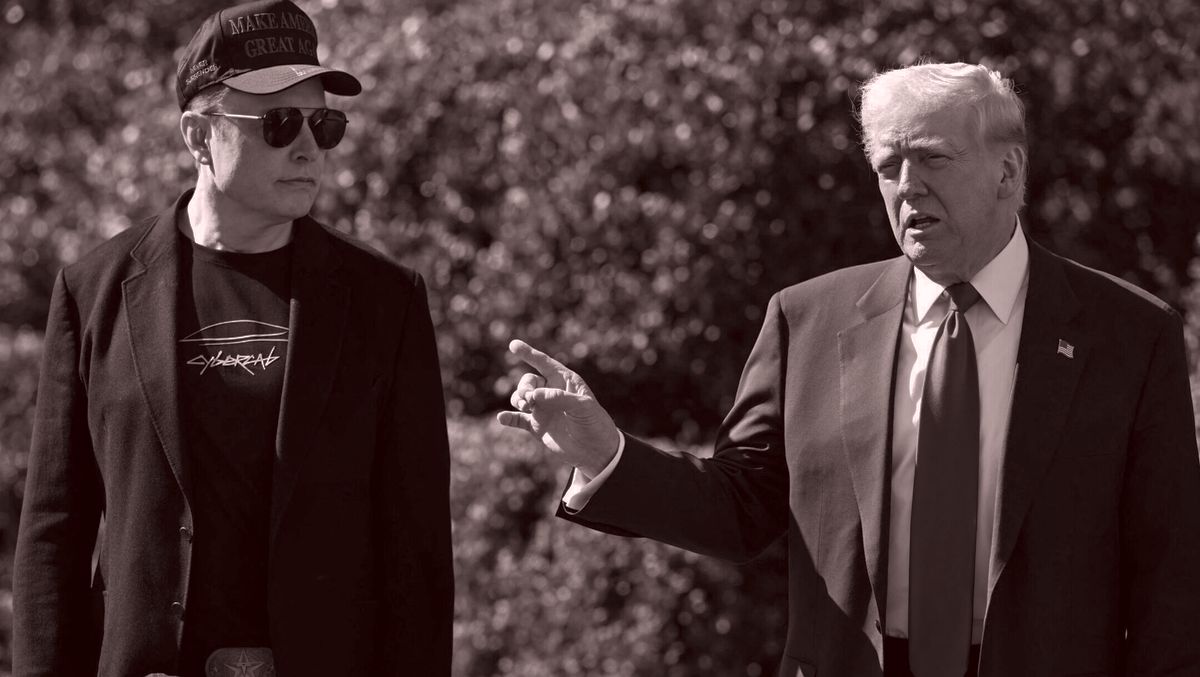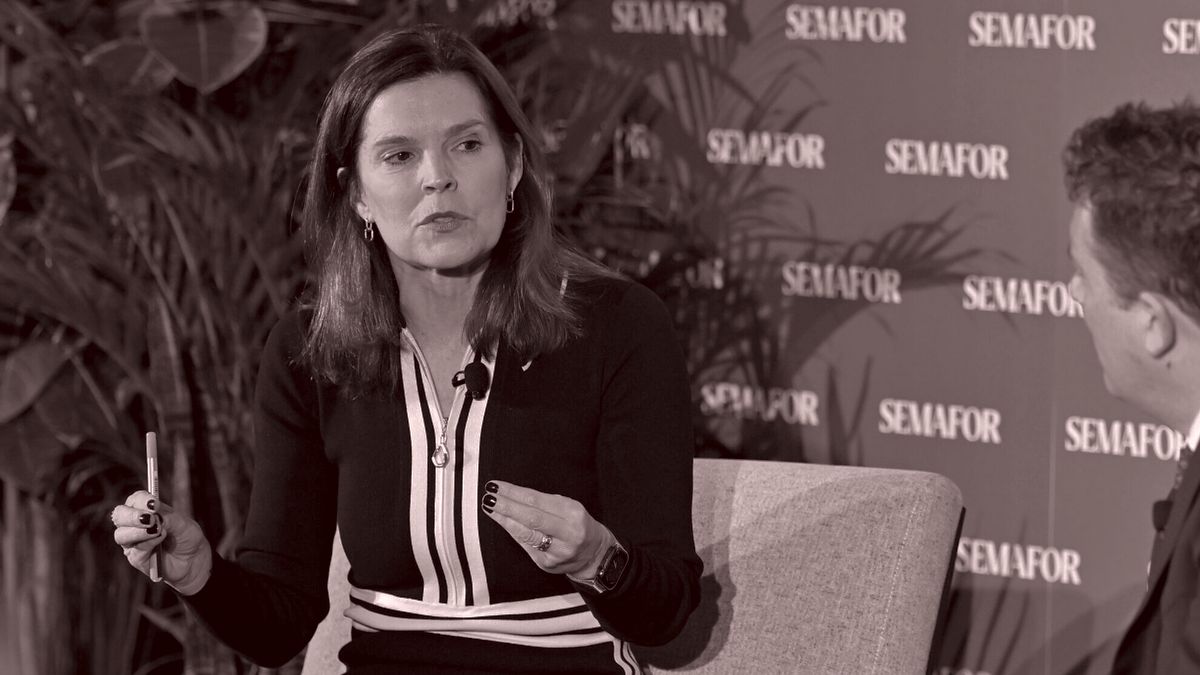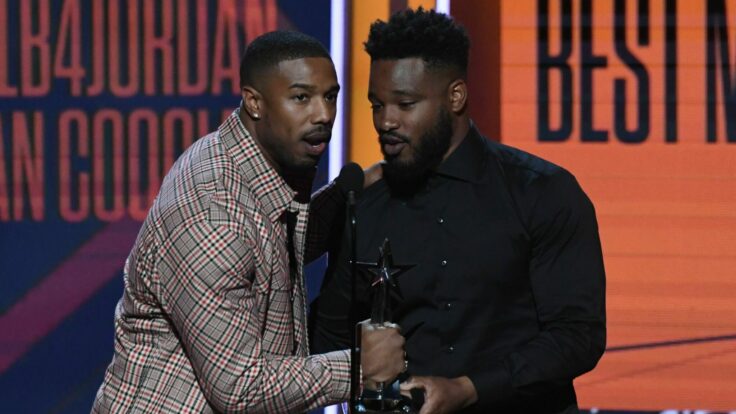Welcome back to What I’m Hearing on this St. Patrick’s Day, nice timing for the Academy to
invite Irish American hero Conan O’Brien back for next year’s Oscars. Congrats to Conan for passing the difficult James Franco–Anne Hathaway test.
Anyway… tonight, a look at today’s forced exit of Jeremy Zimmer at United Talent, plus some Michael Jackson legal news, a theater check-in five years after Covid, career advice for Will Smith, and the only birthday party that could get
Ari Emanuel and Richard Lovett into the same room…
Programming note: This week on The Town, Lucas Shaw and I dissected four dominant narratives around town and debated what’s working on Netflix, and Justin Baldoni litigator Bryan Freedman fought me over why he called Blake Lively a “victim.” Subscribe here and
here.
Still not a Puck member? Just click here. Got a news tip or an idea for me? Just reply to this email or message me on Signal at 310-804-3198.
Mentioned in this issue: Jeremy Zimmer, David Geffen, Will
Smith, David Kramer, Casey Bloys, Bob Iger, Dan Reed, Barry Diller, Paul Wachter, Kate Hudson, Jack Whigham, Dave Bernad, Sofia Hasni Ahuja, Bob Iger, MrBeast, Graydon Carter, Dana Walden, Bela Bajaria, Timothée Chalamet,
Antoine Fuqua, Ben Stiller, Gavin Newsom’s podcast, and… L. Ron Hubbard turns 114!
But first…
|
Let’s just start with a few news items…
|
- HBO
yanked ‘Neverland’ doc in legal settlement: This weekend I watched Leaving Neverland 2, Dan Reed’s follow-up to his explosive Michael Jackson sex-abuse accuser documentary of 2019. This hourlong “sequel,” which follows the ongoing litigation against Jackson’s corporate entities, was supposed to arrive just before the Jackson estate’s big-budget image-reclamation project, Michael, from director Antoine Fuqua. But as
I reported in January, that movie ran into its own legal problems and is now reshooting the third act.
Notably, Leaving Neverland 2 will debut tomorrow on YouTube and not on HBO, which aired the original and was promptly sued by Team Jackson for $100 million for allegedly violating a nondisparagement clause from back in 1992. It went
relatively unnoticed, but after a nasty five-year battle, the Leaving Neverland case was finally dismissed by the parties in October. And I’m told that as part of that settlement, Leaving Neverland was taken down from Max and will not return. So consider this a big win for the estate. An HBO rep told me only that the matter “has been amicably resolved.”
- Speaking of lawyers…: CAA v. Range is finally upon us! The arbitration
starts this week over whether Pete Micelli, Jack Whigham, and the other agents-turned-managers are owed equity in their former employer.
- And another lawyer…: Congrats to entertainment litigator Aaron Moss, who is moving his copyright-focused practice from Greenberg Glusker to Mitchell Silberberg & Knupp.
- Will Smith should totally do a roast: Could Netflix
possibly get Will Smith for its next roast? I really hope so. Smith is one of a few people Netflix has informally approached for the follow-up to The Roast of Tom Brady. And, according to two sources, he hasn’t said no yet. I know it’s a long shot—would the hyper-managed star open himself up to blistering Nikki Glaser jokes about The Slap, Jada, the kids, all of it? Probably not, and so far, this is a very informal
overture—it hasn’t even reached CAA or his management. But the Brady roast generated 22 million views in its first few months, and that special was only available in the U.S. Smith’s would no doubt be way bigger, and it could be exactly the kind of unexpected move that resonates. (Smith’s publicist declined to comment.)
- Michael Kives: The “I beat cancer” party: I’m guessing former CAA agent/politico turned investor/connector Michael
Kives is the only person in L.A. who could get this group to his birthday party on Saturday at San Vicente Bungalows in Santa Monica: David Geffen, Bob Iger, Bill and Hillary, Oprah, Kim Kardashian, Bill Maher (with Al Pacino’s ex Noor Alfallah), Sara and Erin Foster, Jen Meyer,
Barry Diller, Jason Blum, Kate Hudson, the other Kate Hudson (Katy Perry), Brad Falchuk, Jamie Mizrahi, Richard Lovett, and Ari Emanuel… I’ll stop there. It probably helped that Kives’s 44th birthday also doubled as an “I beat cancer” celebration following his successful treatment for Hodgkin’s lymphoma (“The good one,” according to guest Larry
David), complete with a short film by White Lotus producer Dave Bernad and a roast from The Office writers Lee Eisenberg and Gene Stupnitsky.
|
Quote
of the Week (Russo Bros. Edition…)
|
“They ascribe the same algorithmic attention to something they spend a lot of money on as something they
spend very little money on. By that model, you should probably just make everything for a medium number, right?”
—Joe, hilariously questioning Netflix’s strategy of spending $300 million on a movie in a THR interview published the same day his own $300 million movie, The Electric State, hit
the service.
“Transmedia is going to be perhaps the dominant form of media moving forward.”
—Anthony, hard-pivoting to plugging the bros’ nascent A.I. studio in the Journal (better to reach potential investors!) on the back of the “themes” in The Electric State.
“This trend was
started by Harvey Weinstein. He vilified mainstream movies to champion the art films he pushed for Oscar campaigns.”
—Joe, defending the artistic value of popcorn movies to The Times of London and… possibly suggesting The Electric State should win Oscars?
Now onto today’s
“defenestration,” in Puck parlance…
|
|
|
Pushed out of the top talent agency he co-founded and ran, Zimmer became a victim of the
pressures from a changing Hollywood and the private equity investors who increasingly call the shots.
|
|
|
Was anyone really surprised to see United Talent Agency replace its longtime C.E.O. Jeremy
Zimmer? That’s what the announcement was this morning, of course: an old-fashioned Hollywood firing by UTA’s board of directors, spun as a long-planned “succession” with the usual “staying on board to aid the transition” language. Zimmer is an old-school talent agency guy, so I kinda wish he had just come out and said it the way agents often talk about studio executives: “I got shitcanned.”
No shame. Zimmer had a great run, growing UTA, which he co-founded back in 1991, into a
solid number three talent agency behind CAA and WME. I know, Jeremy has big fans… and major detractors; I’ve always liked him personally, though in my experience, he’s got a Jan Brady quality to him—enormously successful yet perpetually thirsty to be equated with Bryan Lourd at CAA and Ari Emanuel at Endeavor/WME, two of the best agents and most ambitious leaders in the history of Hollywood. Hence, Zimmer’s bravado in meetings and many spotlight-seeking media
appearances, including this unforgettable two-shot with UTA client DJ Khaled, and unfortunate foot-in-mouth moments like at a Financial Times conference last fall, where Zimmer admonished creators “to be a little bit more daring in the work they want to do because it’s gotten a bit repetitive.”
Said the guy who has never created anything and isn’t really a talent agent anymore.
Still, with major outside investment over the years, including lately from Swedish private equity firm EQT, Zimmer oversaw not just the survival of UTA amid fierce competition, but the expansion of the company into sports (via Rich Paul’s Klutch), broadcasters (via Bienstock Group), fashion, books, and several other verticals—about 20 acquisitions in
total, though splashy forays into fine art and a ventures group were shuttered or downsized. And the 2022 acquisition of London-based agency Curtis Brown Group, one of UTA’s most successful deals, was spearheaded by David Kramer, the agency’s president, who will now succeed Zimmer.
Zimmer declined to speak with me today, but based on multiple conversations with UTA insiders, chair Paul Wachter and his 11-person board had grown especially frustrated with
him recently. Yes, there were the client defections. In just the past year, UTA lost Kevin Hart, Judd Apatow, and Ben Stiller to WME, and Issa Rae, Hannah Einbinder, and Post Malone (via the hiring of touring agent Cheryl Paglierani) to CAA, plus Sylvester Stallone to IAG. After the strikes of 2023, as the content recession has taken hold and the
agencies have faced layoffs and belt-tightening, there’s been a feeling that CAA, having gobbled up ICM Partners, and WME, flush with cash from Endeavor sister companies UFC and WWE, are hellbent on turning the full-service agency game into a duopoly. That hasn’t happened, of course, but both the UTA board and rank-and-file agents have been feeling the heat. (Usual disclosure: WME represents Puck but not me personally.)
It didn’t help that CAA scored a massive $7 billion valuation in the
2023 sale of TPG’s ownership interest to François-Henri Pinault, and that Endeavor’s “representation” unit, which includes the WME agency, disclosed full-year revenue of $1.7 billion for 2024, up 9 percent compared to the prior year. That’s not quite an apples-to-apples comparison (Endeavor
includes some other businesses like licensing in “representation”), but UTA’s strike-hobbled numbers were nowhere near its rivals’, I’m told. Some mid-level agents complained loudly to management when bonuses in the $15,000 range landed with a thud last year.
Zimmer also championed some questionable deals. He is perceived to have overpaid for Klutch, which UTA first bought into in 2019 and acquired full ownership of last year, according to a knowledgeable source. The board was apparently
far more frustrated with Zimmer’s 2021 deal for MediaLink, the advertising consultancy founded by Michael Kassan. Kassan is a controversial guy (some would say ethically… challenged), and Zimmer happily paid $125 million to jump into bed with him, plus a $25 million payment to Kassan personally.
Somewhat predictably, the personal and professional relationship imploded into litigation last March, with both sides hurling insults and demands for damages. Now, after
a year of fighting, a significant devaluation of the MediaLink asset, a combined $8 million or so in legal fees spent, and the exit of C.O.O. Andrew Thau and several UTA leaders who were involved in the MediaLink deal and integration, the matter is still pending—though I’m told settlement talks picked up last week, perhaps foreshadowing the UTA board’s eagerness to move past both the dispute and Zimmer at the same time. Amusingly, there was zero mention of MediaLink in today’s
UTA-fed trade media coverage of his exit.
Zimmer and the UTA partners brought this kind of scrutiny on themselves, of course, welcoming private equity into its insular talent business. With both Sofia Hasni Ahuja and Sydney Pardey of EQT on the UTA board, as well as Wachter—the influential financial advisor for Arnold Schwarzenegger, LeBron James, and more—the pressure was on. (An added wrinkle: Wachter handles
investments for Timothée Chalamet, perhaps UTA’s most in-demand client.)
If there was a feeling at UTA that Zimmer had “lost the troops,” as they say, Kramer is at least one of those soldiers. A career UTA guy who started in the mailroom, Kramer was always considered the likely successor, having been elevated to president in 2022. The board simply moved up the timeline when its frustrations with Zimmer mounted. And Zimmer will stay on that board, at least for now—with a
massive payout, of course.
Kramer continues the leadership trend of active agents like Richard Weitz, who co-runs WME with former Endeavor C.O.O. and comms chief Christian Muirhead, and the entrenched CAA triad of Lourd, Richard Lovett, and Kevin Huvane. But he inherits a decidedly less-fun agency business in a decidedly less-fun Hollywood. No TV packaging, fewer jobs industry-wide, and a representation business that
seems to be barbelling at the top and bottom with the middle vanishing. With Endeavor about to take WME private again, UTA’s dreams of rolling up tons of interlocking companies to go public are likely only a fantasy, at least for now.
|
This one calls for double siren emojis: OpenAI and Google are asking the Trump administration to let them
train A.I. models on copyrighted materials. Time for Hollywood to mobilize. [The Verge]
Thanks to Flow, Casey Bloys has stumbled on an ingenious way to juice much-needed engagement on Max: Movies for pets. [NY Times]
Comcast added two more Olympics, in 2034 and 2036, for NBCU, “including its streaming platform Peacock.” As if Peacock will exist in 2034. [WSJ]
Harvard Business Review says Taylor Swift is Taylor Swift for four reasons: targeting untapped
markets; finding opportunities to create stickiness; maintaining productive paranoia; and adapting to radical shifts in platforms. Maybe people also like the music? [HBR]
The Tate brothers are too gross for Spotify… yet not gross enough for Endeavor’s UFC. How long until they’re guests on Gavin Newsom’s podcast?
[L.A. Times]
MrBeast, who claims he lost money on his $100 million-ish Amazon deal for Beast Games, wants $150 million for a second season. [WSJ]
Graydon
Carter, promoting his new memoir with Maureen Dowd, took multiple swipes at Anna Wintour and joked that his friend David Zaslav is “wildly underpaid.” I miss magazines. [NY Times]
Netflix needs to option life rights from billionaire In-n-Out heiress Lynsi Snyder so content chief
Bela Bajaria can finally make a gourmet cheeseburger about gourmet cheeseburgers. [Fortune]
Now-ex-D.O.J. lawyer Liz Oyer writes about getting fired after she refused to reinstate gun rights for Mel Gibson.
[Rolling Stone]
Sign of the times: Pinewood’s planned 1.4 million square feet of new soundstages in the U.K. will now be 78 percent data centers. [Stagerunner]
L.
Ron Hubbard turned 114! (Alas, only 74 of those years were on Earth.) To celebrate, here’s the story of how the Scientology founder “disconnected” from his own parents. [Underground Bunker]
And now, here’s Scott on a five-year milestone…
|
|
|

|
Scott Mendelson
|
|
This was supposed to be the comeback year for movie theaters—survive til ’25, etcetera. But this
past weekend, which marked five years since the novel coronavirus upended the globe, saw domestic box office returns topped by an $8.7 million-grossing original, Novocaine. This past Friday-Sunday frame generated just $50.8 million total, or $3 million less than this same grim weekend in 2020 as the world was shutting down. In fact, Novocaine made less, not even accounting for inflation, than the $10.6 million earned by Pixar’s ill-fated Onward in its second weekend. So far this year, the theatrical movie industry has earned $1.22 billion,compared to $1.79 billion up to this point in
2020.
Meanwhile, most other out-of-home entertainment options have returned to 2010s-era norms. Thus far this season, Broadway attendance is at 95 percent of its record-setting 2018-2019
season. The concert industry is flourishing, with $9.5 billion in tickets from the top 100 tours, according to Pollstar, up 71 percent from 2019. Likewise, the NFL, the NBA, the MLB, and the NHL have all reported increases in attendance in their most recent full seasons compared to pre-pandemic years.
So… why not movies? There are the obvious culprits: the
push-to-streaming, consolidation, the dual labor strikes, and the decline of theatrical genres, like romantic comedies and dramas, that used to mint movie stars. But moviegoing was also far more vulnerable than Broadway or the concert industry. It is much cheaper than a concert or live sporting events, and the delta between watching a film in theaters versus weeks later on the couch is far narrower than, say, seeing Taylor Swift live on stage versus streaming Taylor
Swift: The Eras Tour on Disney+. And even though most theatrical releases still perform better than streaming-only titles in post-theatrical (P.V.O.D., etcetera), there has been a vast decline in overall volume.
There’s just no getting around that drop-off. In 2018, a high-water mark, North American theaters released 872 feature films (155
of which played in at least 1,000 theaters) for a record-breaking…
Continue reading online…
|
|
|
Light feedback this week, but a couple responses to my mailbag items on Netflix “quality” and Disney
succession…
“Quality sucks but does Netflix care? Can you even properly scale differently? It’s sad/frustrating but it’s not going to change. Too many people watch junk (otherwise a service like Max would be No. 1), and Netflix competitors are failing to compete—especially at the global level.” —An executive
“If Dana [Walden] was the chosen one, she would have been chosen already. Simple as that. The mere fact that we don’t know the
heir apparent yet is all the signal we need to know the ultimate choice will come from outside the company, regardless of any friendship with Kamala.” —Another executive
|
Have a great week,
Matt
Clarification: Director Bong Joon Ho insisted
on a podcast in February that his version of Mickey 17 tested higher than the alternative cut that Warner Bros. created. Kim Masters’s column last Monday cited a source saying the WB version tested higher, so we’ve updated the column to include the contradictory source.
Got a question, comment, complaint, or a competing cut of
this newsletter? Email me at Matt@puck.news or call/text me at 310-804-3198.
|
|
|
Ace media reporter Dylan Byers brings readers into the C-suite as he chronicles the biggest stories in the industry: the
future of cable news in the streaming era, the transformation of legacy publishers, the tech giants remaking the market, and all the egos involved.
|
|
|
Need help? Review our FAQ page or contact us for assistance. For brand partnerships, email ads@puck.news.
You received this email because you signed up to receive emails from Puck, or as part of your Puck account associated with . To stop receiving this newsletter and/or manage all your email preferences, click here.
|
Puck is published by Heat Media LLC. 107 Greenwich St, New York, NY 10006
|
|
|
|
|
